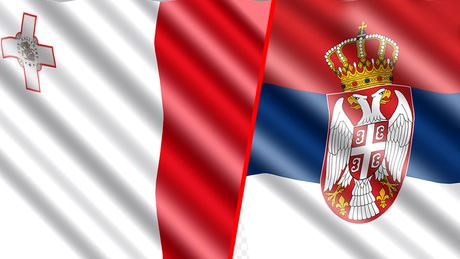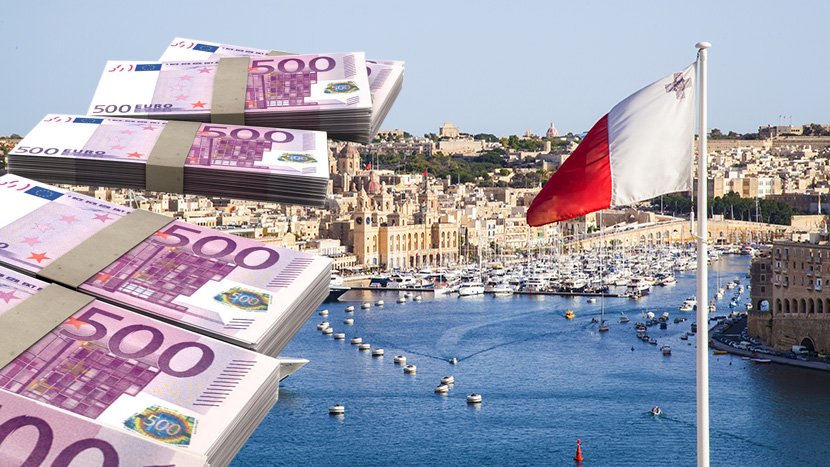Victory in Malta: Serbian children to stay with their parents
Malta's prime minister met this morning with ministers involved in resolving this issue, making a decision on exemption

22 children of Serbian nationals in Malta that were threatened by deportation will remain on the island. The prime minister of Malta held a meeting this morning with ministers involved in addressing the issue and an exemption decision has been made.
After much pressure from the public, the media and the Serbian community in Malta, there has been a twist in the story of the 22 children from Serbia who were under threat of deportation because of their parents' insufficent earnings. According to RTS, the 22 children, citizens of Serbia, will receive residence permits and stay in Malta.
The fate of the Serbian children in Malta has touched many public figures in that country who have launched a campaign to provide financial assistance to families from Serbia and other non-EU countries so that their children could legally stay in Malta with their parents after the decision to expel them.
Serbians working and living in Malta have been in fear for days that they might be forcibly separated from their children, thanks to the Maltese immigration authorities declaring the 22 children as "illegal immigrants" - following the rejection of their residence permit applications.
"The parents are desperate and upset with this unreasonable and unjust decision," said Maja Brown Blagojevic from the Board of the Serbian Community in Malta.
She pointed out that the Agency for Citizenship and Residence has been implementing such draconian measures for a while now, without complying with the European Union directive, which includes the right to family reunification and according to which the estimated annual income is calculated on the basis of minimal annual earnings.
"The Maltese authorities are now insisting on the median annual income, relative to the annual salary range," Blagojevic explained for Pink.rs

She says the decision affected many children of different ages, some of whom were born in Malta, and that their relocation would represent a big problem. Among them, she said, are children who have been in Malta for several years ,where they go to school, have friends and are socialized.
"For all of them, this is shock and trauma," Blagojevic says.
She added that parents pressured the authorities, and the initiative resulted in a general local campaign involving many people of good will, including civic organizations and associations.
"We are surprised by the policy of this institution (immigration agency), because double standards are obviously being applied: one for third-country nationals and another for EU citizens. If the minimum wage is not sufficient to support Maltese, i.e., European (Union) families, how is it being applied at all? Perhaps the minimum wage limit is a mistake, or the whole approach needs to be revised," said Blagojevic.
Referring to by-laws, she says, the Maltese government has decided to apply the principle of median annual income.
"They apply this principle, unlike the European directive which clearly recommends that member states apply only minimum annual wage as maximum requirement (for residence), which includes all other bonuses, paid leave, overtime and part-time work, i.e. all other sources of income," says Blagojevic.
The Ministry of Foreign Affairs on Monday asked the competent Maltese authorities to urgently inform Serbia about the regulations governing the stay of foreign nationals in that country.
Charles Scicluna, the archbishop of Malta, also called for a solution to the problem of families from Serbia whose children cannot obtain a residence permit. He urged all parishes and Catholic communities to consider "adopting" one or more children, guaranteeing with money, if necessary, that they would be supported.
Former president of Malta appalled by treatment of Serbian children
Former President of Malta now President of Eurochild Marie-Louise Coleiro Preca said during a meeting with the Serbian parents that she was appalled by the treatment of the 22 Serbian children.
The former president expressed support for the parents during last night's meeting and suggested that they seek legal assistance.
She stressed that the agency dealing with the issuance of residence permits was violating numerous by-laws. Meanwhile, in less than 24 hours, 3,000 signatures were collected in support of a petition calling for children to stay in Malta with their parents.
Vladica Djordjevic, whose daughter was among those who did not receive her residence permit even though she was born in Malta, told RTS that the petition, signed by numerous well-known public figures, had been submitted to the government of Malta. He said earlier that parents didn't know what was going to happen, given the recent dismissal of the prime minister - they assumed that only after a new government was in office their problem would be considered.
Djordjevic also said that his family had planned to spend Christmas holidays in Serbia, but that due to the new situation, they cannot leave the island.
(Telegraf.rs/RTS/Pink)
Telegraf.rs zadržava sva prava nad sadržajem. Za preuzimanje sadržaja pogledajte uputstva na stranici Uslovi korišćenja.




